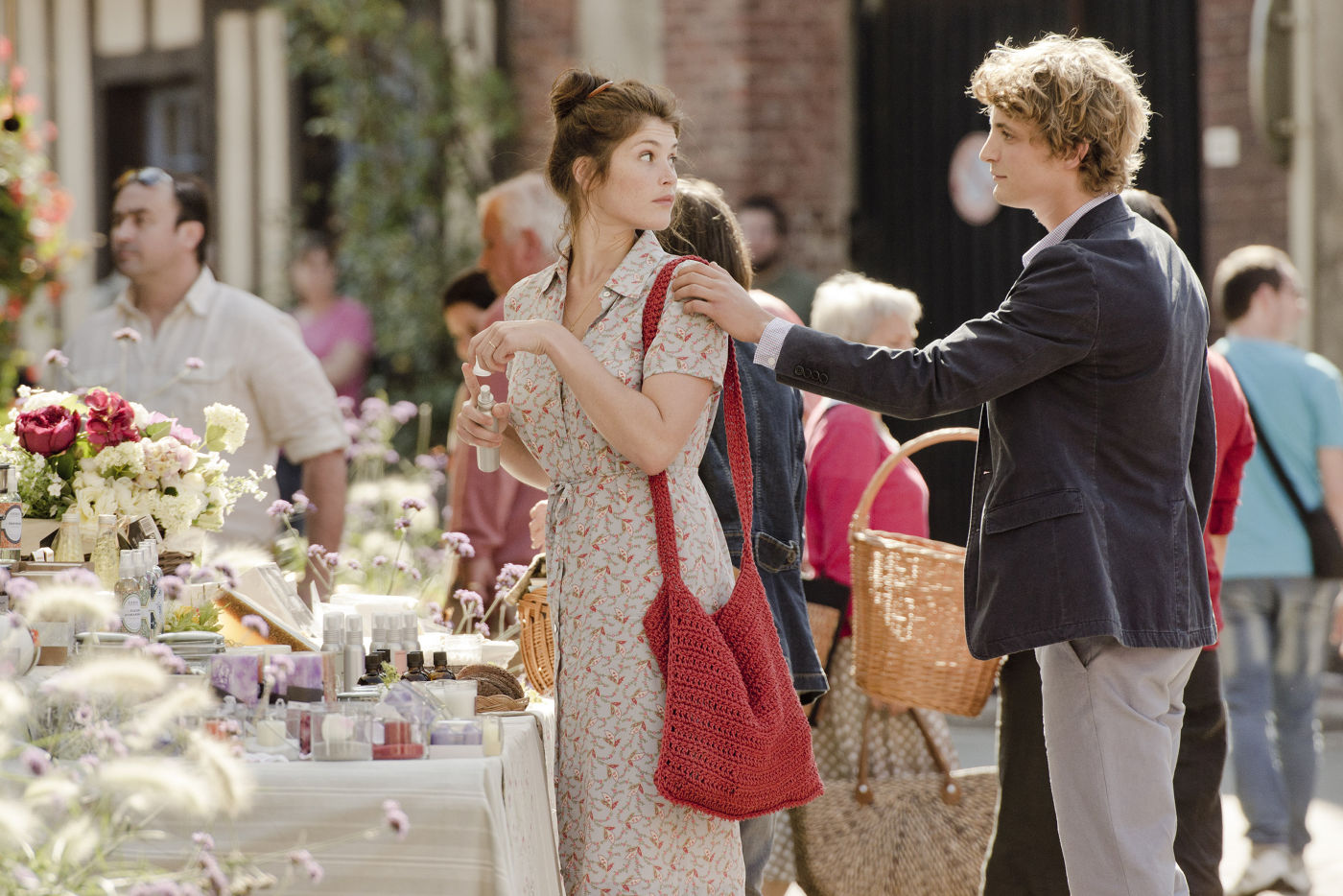TIFF 2014 REVIEW: 'Gemma Bovery'
If you’ve ever become a die-hard fan of a book, you might know what it’s like to start seeing parts of the book play out around you in real life. It’s likely a sign of a truly great work of literature if you’re struck by how life can imitate art from time to time – as if there was some grander power at work melding the real and the fictional.
With the emergence of fan fiction on sites like Tumblr and elsewhere, the mixing of life and art can sometimes reach uncomfortable levels. For some, the line between the two worlds becomes totally blurred. Obsessive fans write racy stories featuring their favourite celebrities, and fawn over every bit of biographical information they can find. Rarely does it result in any kind of dangerous consequences, but the behaviour is worrying nonetheless.
We’d normally expect this kind of irrational fandom to come from teenagers and twenty-somethings, and to focus on bits of pop culture like movies or TV shows. By contrast, a village in the Normandy countryside seems like an odd location for a tale about fan obsession to play out, and yet that’s what we find in the new film Gemma Bovery, an adaptation of the graphic novel by Posy Simmonds. Not only that, but the fan in question is a French baker in his fifties, and his fixation is the 1856 novel Madame Bovary by Gustave Flaubert. Didn’t see that one coming, did you?
We follow Martin the baker (Fabrice Luchini) as he gets to know an English couple who move into a run-down cottage next door. Oddly enough, the couple are called Charles and Gemma Bovery (like Martin’s beloved novel), and over the next few months, Martin not only falls in love with Mrs. Bovery (Gemma Arterton) from afar, but worries that her life is beginning to follow the plot of the Flaubert novel, which ends in adultery, heartbreak and suicide.
Thankfully, Martin’s intrusion into Gemma’s life is fairly tame. We see him looking longingly at her from time to time, and at one point he tries to prevent Gemma from cheating on her husband, but most of the time he’s just a quiet, occasional observer. Martin’s vantage point provides a hilarious filter for the events of the film – without Martin’s miserable commentary from the sidelines, the film would be reduced to a standard relationship drama. We join Martin in his observations, and share his bafflement at his neighbours’ behaviour. The film doesn’t break the fourth wall, but it gets close, and the result is refreshing and funny.
Another reason I’m glad to have Martin as the entry point into the story is that despite all Gemma Bovery’s time onscreen, we don’t get much insight into why she decides to cheat on her husband. In the original novel by Flaubert, Madame Bovary’s extramarital affairs are partially to achieve more social status – here, we’re only told Gemma is bored with her life in France, and doesn’t find her husband (Jason Flemyng) that exciting. Even so, it doesn’t seem like enough reason for the bad decisions she makes.
Perhaps this is intentional, as we’re meant to see the story from Martin’s limited perspective. Either way, it’s not hard to be frustrated by Gemma. We sympathize with Martin, who - like many book lovers faced with a development they don’t like - wishes he could change the story that’s unfolding in front of him. Failing that, he tries to learn as much as he can about the characters involved, just to understand why it’s all happening.
Based on what I’ve read about Posy Simmonds’ original graphic novel, it seems like director Anne Fontaine (Coco Before Chanel) has produced a faithful adaptation – her cast is well-chosen, and she captures the French countryside beautifully with her camera. I’d advise viewers, however, to at least skim the outline of the Flaubert novel if they’re not already familiar with it – I went in unprepared, and while I still had a great time, knowing a bit about the book would definitely enhance the experience.
Gemma Bovery proves that becoming wrapped up in a piece of art isn’t restricted to mega-popular contemporary entertainment. As long as we’ve told stories, made music or captured images, there’s a chance that someone in the audience will fall in love with the characters, and let that fandom shape their worldview. Anne Fontaine’s film reminds us that real life eventually comes crashing in on that fantasy – the question is how we respond to it. Gemma Bovery gets three stars out of four.
Gemma Bovery just had its world premiere at the 39th annual Toronto International Film Festival (TIFF). If you’ve seen it, what did you think? Join the discussion in the comments section, and if you liked this review, share it with your friends and followers!



